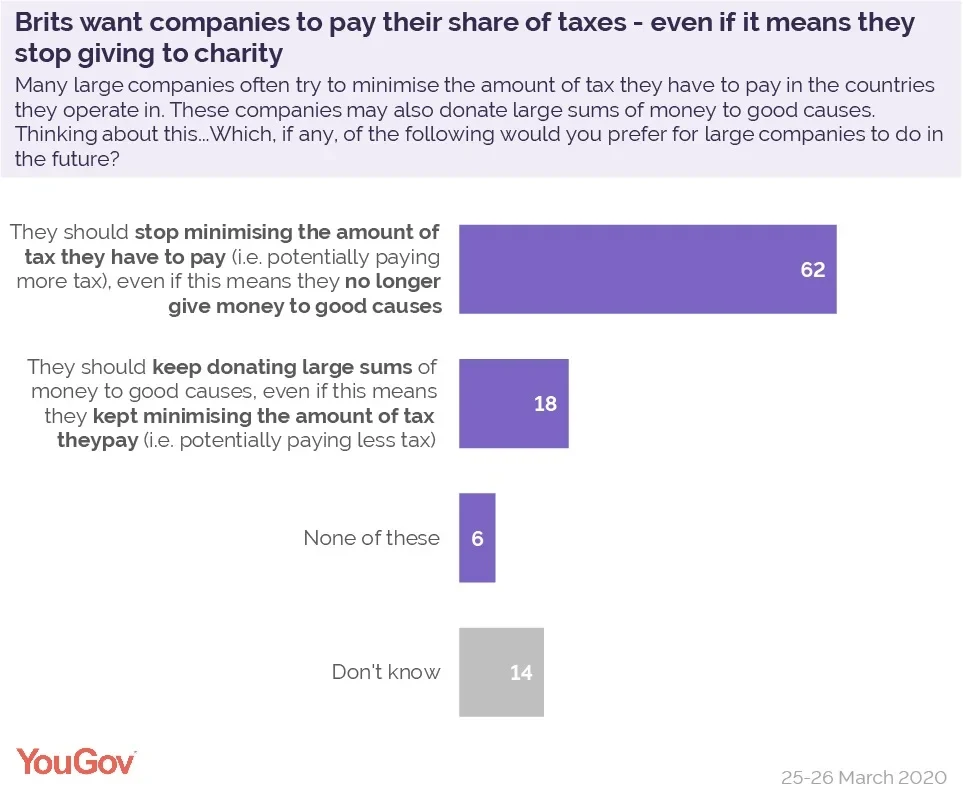YouGov polling reveals that most Britons would prefer big businesses to stop giving money to good causes - and simply start giving it to the taxman
The COVID-19 pandemic has prompted a wave of charitable activity from big-name donors and companies alike. Large technology firms have been singled out in the media for their generosity in recent weeks, having collectively donated hundreds of millions of pounds to the fight against the virus.
But while these businesses have won praise (and numerous positive headlines) for these efforts, they’ve also received criticism – both before and now during the pandemic. Some argue that these charitable donations are dwarfed by what they owe in unpaid tax.
New YouGov research conducted just after the coronavirus lockdown shows that six in ten Brits (61%) would prefer large companies to pay what they owe – even if it means they stop giving money to good causes. Just a fifth (18%) would prefer companies to continue their charitable giving even if it means minimising their tax contributions.

Business leaders have argued that they’re in a better position to do good with their money than the Government, and in the unusual emergency conditions of a crisis many have welcomed their donations.
But our data also points to a broader distrust between large companies and the British public. A plurality of Brits (35%) believe big businesses have a negative impact on the world compared to a quarter (24%) who believe they have a positive impact. Around a month before lockdown we also asked the public what they think about the intentions of these businesses with regard to philanthropy: two-thirds (67%) said they were more interested in looking good than doing good, compared to 16% who said the opposite.
Public antipathy towards these efforts could be partially explained as a hangover from recent PR scandals. 2019, for example, saw the family that owns Purdue Pharma accused of hiding billions in tax havens – and using the positive publicity from their philanthropy (in the UK and elsewhere) to deflect attention away from their company’s alleged role in the US opioid crisis.











